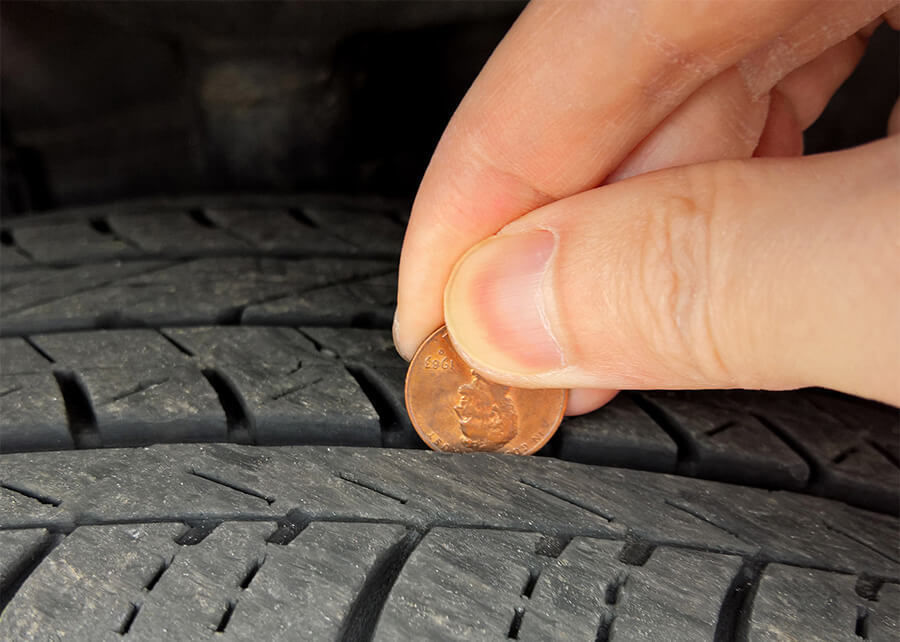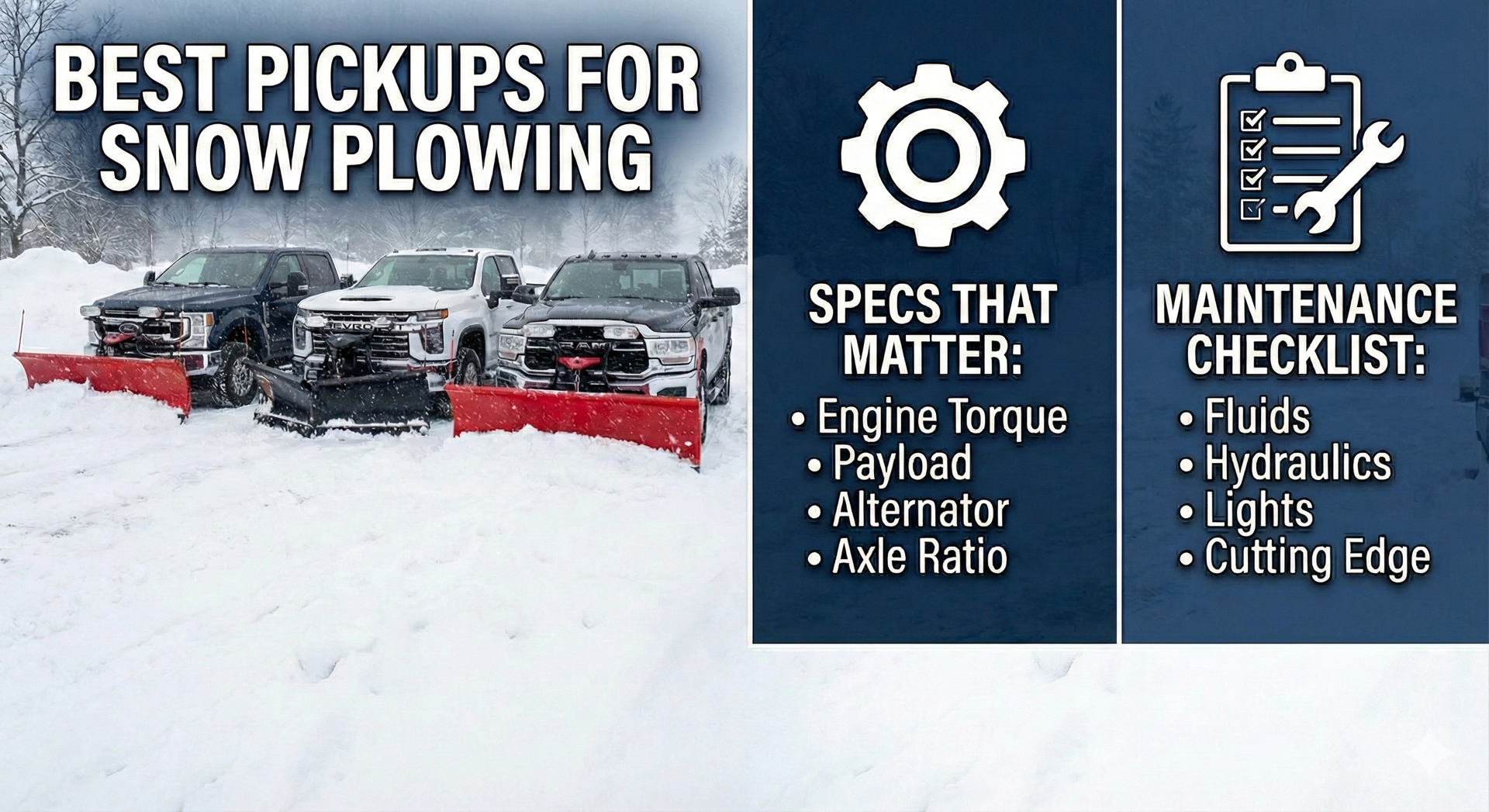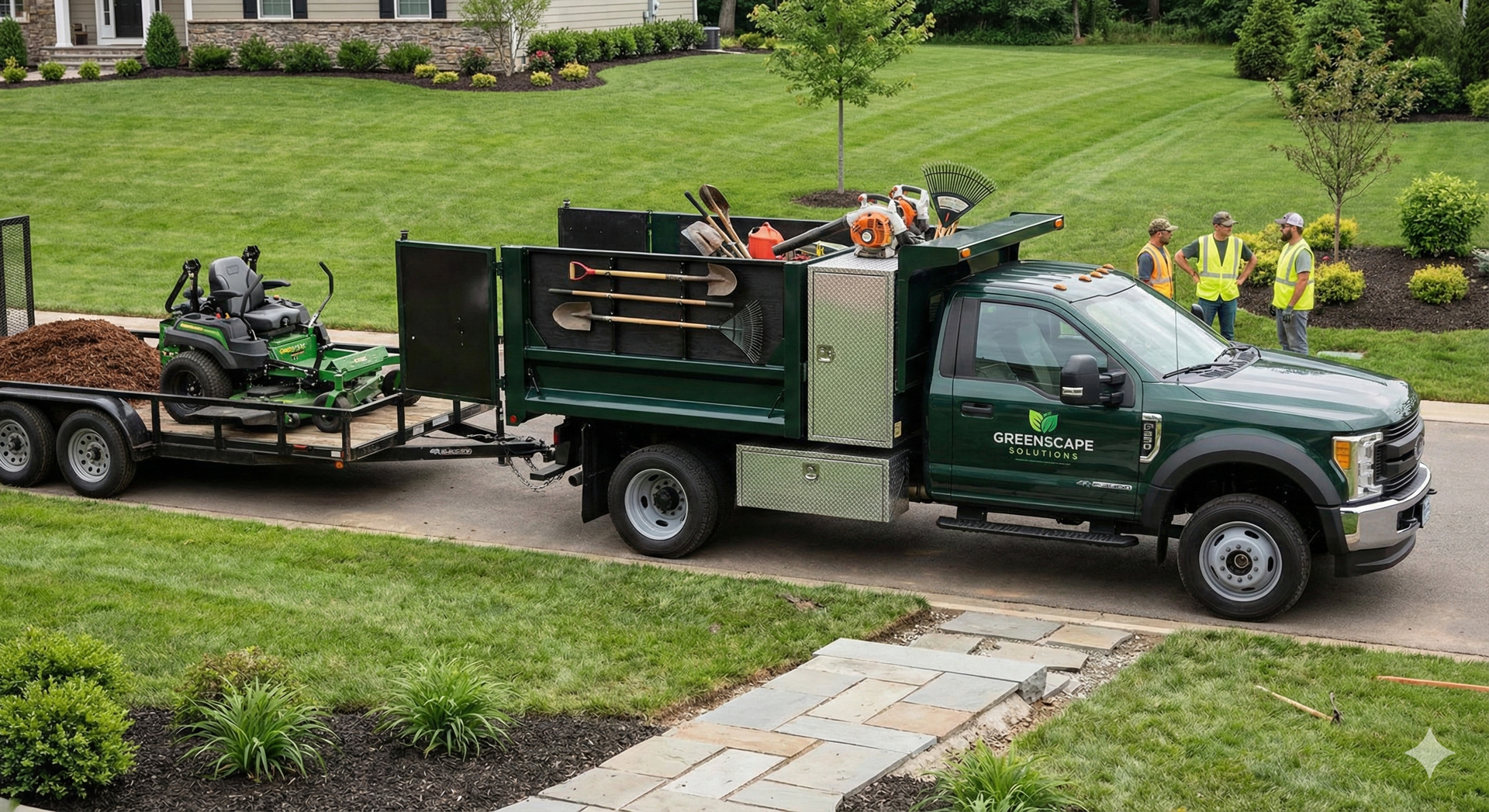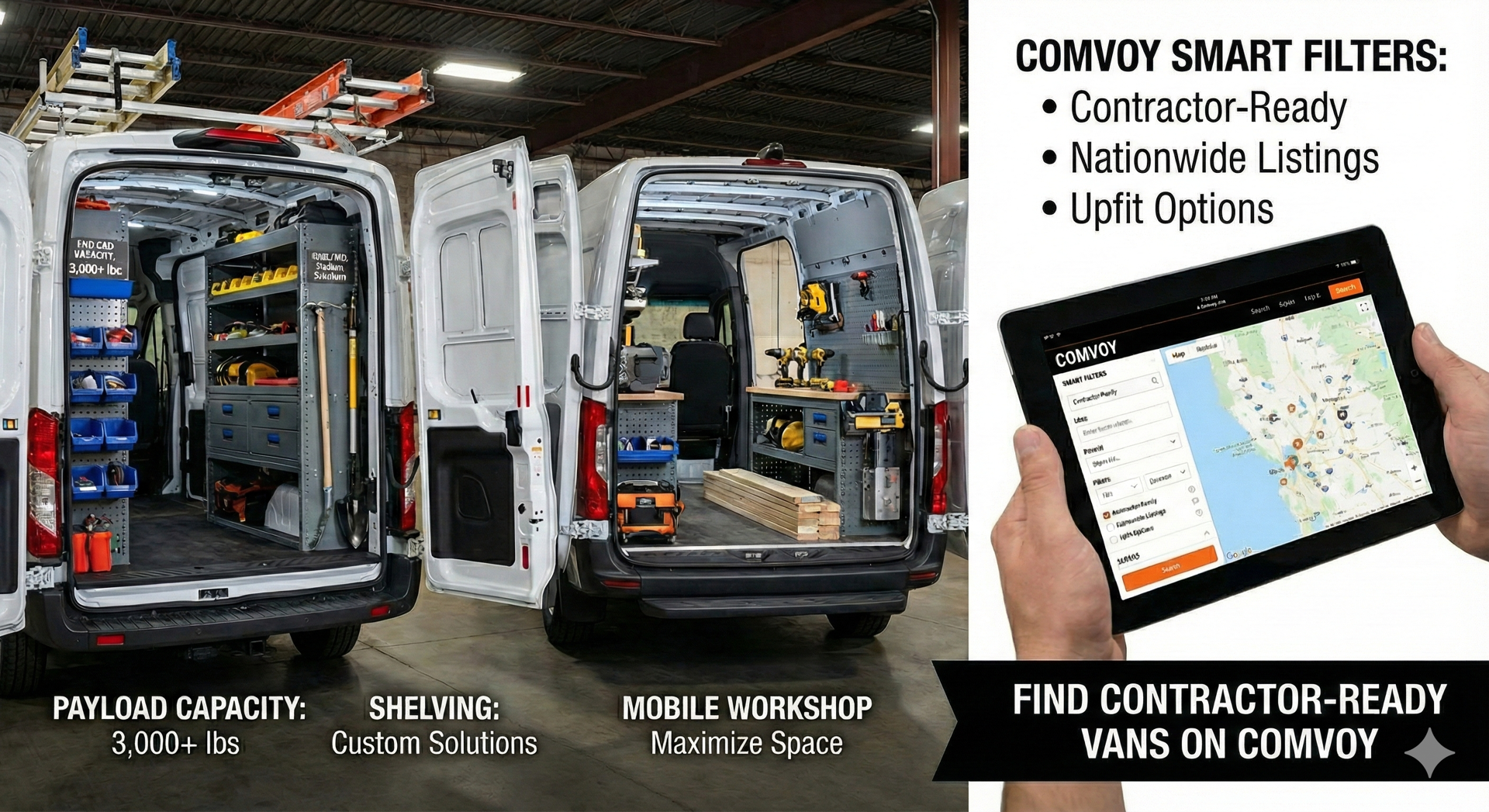Best Tires for 20 Top Work Trucks & Vans (And When to Replace Them)


Best Tires for 20 Top Work Trucks & Vans (And When to Replace Them)
The best tires for a work truck or van are those that keep the vehicle on the road. In this article, we'll go over how to determine if your tires need replacing and the OEM recommended tire sizes for popular work trucks and vans.
Table of Contents
- How to check your tire tread depth
- How to check the age of your tires
- Popular work vans' OEM recommended tire sizes:
- FAQ
Tires for work trucks and vans take exceptionally more abuse than personal vehicles, handling higher loads and more miles, with a good portion being on less than ideal surfaces. Upfitted work trucks and vans are heavy and get even heavier when loaded with tools, cargo, and people, meaning you'll get even fewer miles out of your tires.
Before we dive into the best tires for your work vans and trucks, there a few ways you can first check if they are ready to be replaced.
How to Check Your Tire Tread Depth

Don't let this be you, check your tires for tread and age, and avoid a blowout!
The standard way to determine life left in tires is with a tire tread depth gauge. Measure by placing the gauge in the center tire groove, taking multiple measurements, average them out, and comparing the wear to the tire manufacturer specifications. The Department of Transportation (DOT) uses 2/32" as the minimum legal tread depth; this is measured easily with a penny by placing the coin with Lincoln's head upside down in the center groove.

If you can see the top of Lincolns head, you have less than 2/32," and the tire needs replacing. Replace work truck tires before this for the best performance and safety, so ensure you are often checking and replacing sooner than the minimum legal tread depth.
Tip: Measure tread depth for all tires on a vehicle to determine any uneven wear issues. Readings that are different could indicate incorrect alignment, air pressure, worn parts, or other problems.
How to Check the Age of Your Tires
Another critical factor to consider is the age of tires. Old tires may have plenty of tread but are still unsafe. Most tire manufacturers' warranties expire at six years and recommend replacing ten year old tires regardless of tread depth. Some tire places will not service tires older than ten years. Many work trucks and vans are stored outdoors, which further ages the tires. Determining the tires' age is simple with the DOT standard for Tire Identification Number (serial number), which includes when the tire was made. The last four digits of the DOT code indicate the date the tire was made, with the first two digits indicating the week and last two the year.

The tire in the example above is past six years old and could be replaced for the best safety.
20 Popular Trucks' OEM Recommended Tires
After determining if your work truck tires need replacing, you need the truck's recommended tire size is. OEM recommended tire sizes give the truck the best combo of handling, comfort, safety, and wear. Your business's needs may change your tires' demands but talk to a tire professional at your local tire shop to determine any tradeoffs of switching to a non-OEM recommended tire size.
Best Tires for Base Model Ford F-Series and Ford Transit Vans
Popular sizes for base model Ford F-Series trucks and Ford Transit vans are in the table below with links to recommended tires.
| Ford f-250 xl/F-350 XL | Ford f-450 xl/F-550 XL | Ford f-650 xl/F-750 XL | Ford Transit Connect | Ford Transit Single Rear Wheel (SRW) | Ford Transit Dual Rear Wheel (DRW) |
| LT245/75Rx17E | 225/70Rx19.5G | 11R22.5G | 215/55R16 97H XL | 235/65R16 |
Best Tires for Base Model RAM Trucks and RAM Promaster Vans
Popular sizes for base model RAM trucks and RAM Promaster vans are in the table below with links to recommended tires.
| RAM 1500 | RAM 2500 | RAM 3500 | RAM 4500/5500 | RAM Promaster City | RAM Promaster |
| 275/65R18 | LT245/70R17E | LT275/70SR18E | 225/70R19.5G | P215/55SR16 | LT225/75QR16E |
Best Tires for Base Model Chevrolet Trucks
Popular sizes for base model Chevrolet trucks are in the table below with links to recommended tires.
| Chevrolet Silverado 1500 | Chevrolet Silverado 2500 | Chevrolet Silverado 3500 Single Rear Wheel (SRW) | Chevrolet Silverado 3500 Dual Rear Wheel (DRW) | Chevrolet Silverado 4500/5500/6500 |
| 255/70R17 | LT245/75R17 | LT275/70R18E | LT235/80R17E | 225/70R19.5G |
Best Tires for Base Model Mercedes Vans and Sprinters
Popular sizes for base model Mercedes vans are in the table below with links to recommended tires.
| Mercedes Sprinter 1500/2500 | Mercedes Sprinter 3500/4500 Dual Rear Wheel (DRW) | Mercedes Metris |
| LT245/75R16 | LT215/85R16 | 225/55R17 |
FAQ
What are the longest lasting truck tires?
Currently some of the best, longest lasting tires on the market are the BFGoodrich All-Terrain T/A KO2 Radial Tire, Michelin Defender LTX M/S All-Season Radial Tire, Goodyear Wrangler Radial Tire and the Hankook Dynapro ATM RF10 All-Terrain Radial Tire
What does a C rated tire mean?
A C-rated or C-type tire means that it is specifically designed for commercial use; the C stands for “commercial-rated” or “cargo.” These tire types have a higher load rating.
How long do tires last on a work truck?
Ideally, you want your work truck tires to last anywhere from 4-5 years. This may be equivalent to 50,000 to 75,000 miles. Experts recommend never keeping tires older than six years on a truck.
What load range is a 12 ply tire?
A 12-ply tire is in Load Range F, meaning it has a max load carrying air pressure of about 95 PSI.
What is a cargo tire?
A cargo tire, or C-type tire, is designed for certain cargo vans and is a commercial-rated tire type.
Published on: August 18, 2020






